Manifestazione di interesse Coordinatore Commissioni Lavoro
Si invitano tutti i soci ad inviare – tramite email a consigliodirettivo@avvocatisport.it – la propria manifestazione di interesse – entro e non oltre il 06 gennaio 2025 - al fine di assumere la carica di Coordinatore delle Commissioni Lavoro:
- Immigrazione e Cittadinanza
- Agenti Sportivi
- Rapporto di Lavoro Sportivo
Si specifica che il Consiglio Direttivo, in caso di plurime richieste, provvederà ad individuare e, quindi, nominare il socio “candidato” a suo insindacabile giudizio e nella piena libera discrezionalità.
EVENTI
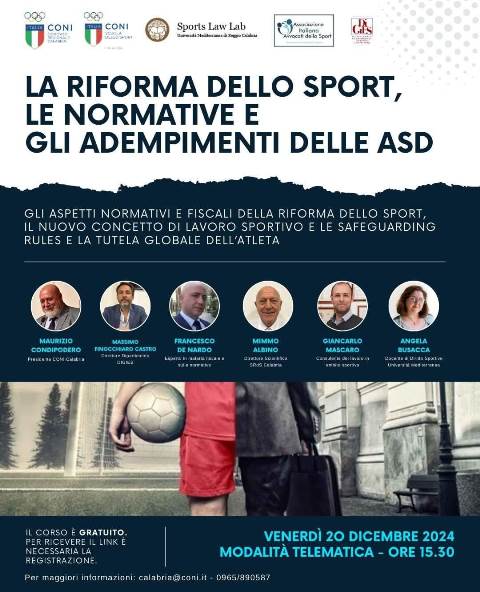
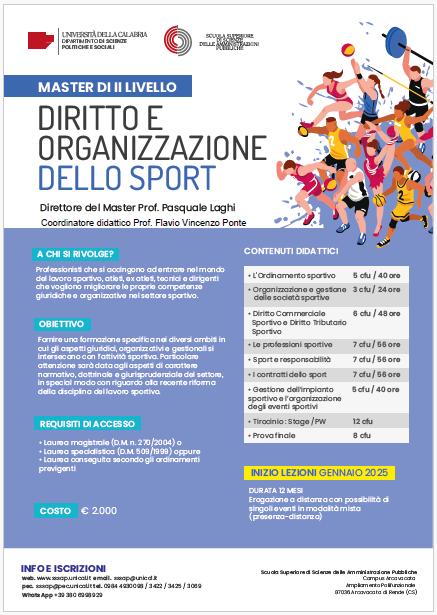
KU LEUVEN
online
Microcredential in Global Sports Law and Governance
Programme
RESOCONTO EVENTI ASSOCIATIVI
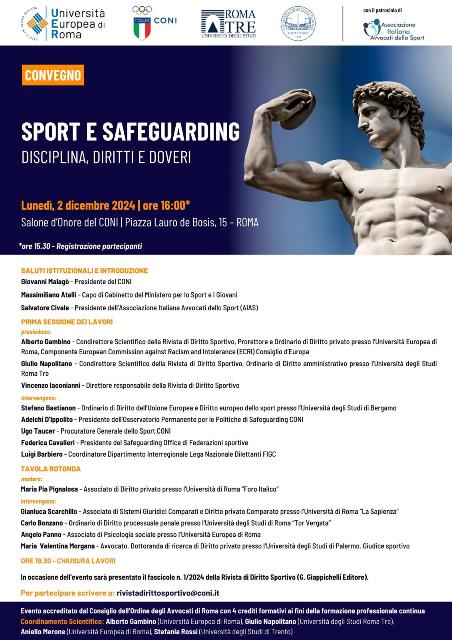
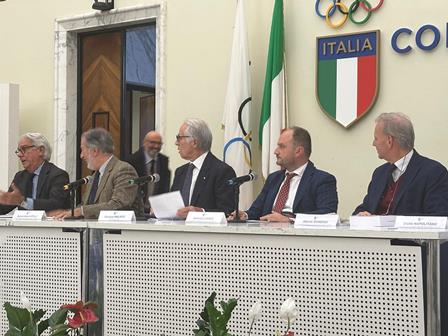
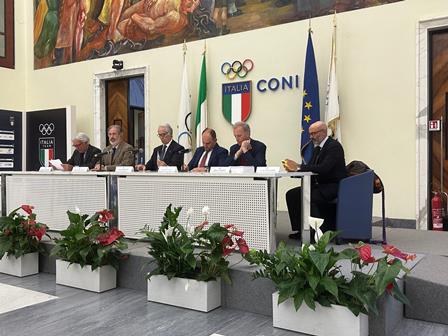
.jpg)
Convegno “L'Ordinamento sportivo e le professioni nello sport”
(Liceo da Vinci Trento - percorso alternanza scuola lavoro)
Coordinamento Trentino Alto Adige
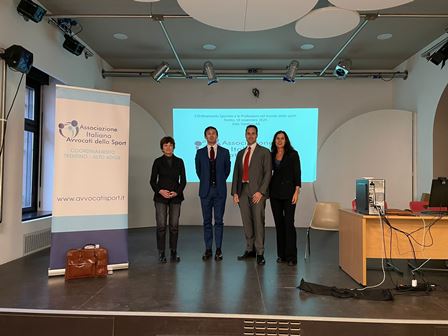
NEWS INTERNAZIONALI
GIURISPRUDENZA CAS-TAS
PUBBLICAZIONI
RDES 2024
THE EVOLUTION OF FIFA TRANSFER FOOTBALL
REGULATIONS:
CHALLENGES, OPPORTUNITIES, AND
INNOVATIVE APPROACHES
IN THE WAKE OF THE DIARRA JUDGMENT
by Stefano Bastianon and Michele Colucci
 Full Professor of European Union Law at the University of Bergamo
(Italy), CAS Arbitrator and member of the “Collegio di Garanzia dello Sport del CONI” (Italian
highest Sports Court of the Italian Olympic Committee). He is an Attorney-at-law and co-founder
of the Law Firm Bastianon-Garavaglia in Busto Arsizio (Italy). He is a member of the Steering
Committee of the Rivista di Diritto Sportivo and the Scientific Committee of the Rivista di Diritto
ed Economia dello Sport.
Full Professor of European Union Law at the University of Bergamo
(Italy), CAS Arbitrator and member of the “Collegio di Garanzia dello Sport del CONI” (Italian
highest Sports Court of the Italian Olympic Committee). He is an Attorney-at-law and co-founder
of the Law Firm Bastianon-Garavaglia in Busto Arsizio (Italy). He is a member of the Steering
Committee of the Rivista di Diritto Sportivo and the Scientific Committee of the Rivista di Diritto
ed Economia dello Sport.
 Civil servant of the European Commission in Brussels, member of the
Dispute Resolution Chamber of the FIFA Football Tribunal and President of the Council of the
European Court of Arbitration of the European Handball Federation. He is the co-founder and
honorary President of the Italian Association of Sports Lawyers (AIAS), editor of the International
Encyclopaedia of Sports Law and Scientific Director of the Rivista di Diritto ed Economia
dello Sport.
Civil servant of the European Commission in Brussels, member of the
Dispute Resolution Chamber of the FIFA Football Tribunal and President of the Council of the
European Court of Arbitration of the European Handball Federation. He is the co-founder and
honorary President of the Italian Association of Sports Lawyers (AIAS), editor of the International
Encyclopaedia of Sports Law and Scientific Director of the Rivista di Diritto ed Economia
dello Sport.
Abstract
The authors analyze the legal issues and challenges the current FIFA
transfer regulations must cope with in complying with the Diarra ruling by the European
Court of Justice. They consider the ratione loci and temporis impact of the ruling on
football. Furthermore, they explore potential outcomes in the short, medium, and long
term, highlighting how the judgment could serve as an opportunity for the evolution of
the FIFA transfer system. In this context, they offer possible solutions and alternative
measures to align the FIFA rules with the goals of world football governing body, ensuring
full compliance with the EU fundamental principles of freedom of movement and freedom
of competition.
Gli autori analizzano le questioni legali sollevate dalla recente giurisprudenza
Diarra della Corte di Giustizia dell’Unione europea e le sfide che la FIFA dovrà affrontare
nel conformarsi a tale giurisprudenza. Essi considerano l’ambito di applicazione della
sentenza ratione loci e ratione temporis. Inoltre, esplorano il potenziale impatto nel
breve, medio e lungo termine, evidenziando come la sentenza possa rappresentare
un’opportunità per l’evoluzione del sistema di trasferimenti FIFA. In questo contesto,
gli autori offrono possibili soluzioni e misure alternative per allineare le regole FIFA
con i suoi obiettivi nel pieno rispetto dei principi fondamentali dell’Unione europea in
materia di libera circolazione e di libera concorrenza.
Keywords
Transfer Rules – Joint liability – International Transfer Certificate –
Freedom of Movement – Freedom of Competition – Sporting Sanctions –
Proportionality.
Regole sui Trasferimenti – Responsabilità Solidale – Certificato di
Trasferimento Internazionale – Libertà di Circolazione – Libertà di
Concorrenza – Sanzioni Sportive – Proporzionalità.
Open access
DAL MODELLO 231 AL MODELLO DI PREVENZIONE FIGC:
L’EVOLUZIONE DELLA COMPLIANCE NELLE SOCIETÀ DI CALCIO
di Francesco Riccardi
 Dottore in Giurisprudenza presso l’Alma Mater Studiorum - Università di Bologna. Vincitore ex aequo «Premio RDES 2023-2024».
Dottore in Giurisprudenza presso l’Alma Mater Studiorum - Università di Bologna. Vincitore ex aequo «Premio RDES 2023-2024».
Abstract
The increasing structural, organizational, and operational complexity of
football clubs has required these entities to engage with the provisions of Legislative
Decree No. 231 of 2001 and the implications related to the administrative liability
outlined by that law. Over the years, football clubs have thus adopted their own
Organizational, Management, and Control Models (MOGC). In parallel, the Italian
Football Federation (FIGC) has chosen to introduce a similar instrument within its
regulatory framework, known as the Prevention Model, designed to exempt clubs from
sporting liability pursuant to Art. 6 Sports Justice Code (CGS). The coexistence of these
distinct obligations could therefore suggest the need to regulate a single model aimed
at preventing the commission of both administrative-criminal and sporting offenses
within football clubs.
La crescente complessità strutturale, organizzativa e operativa delle società di
calcio ha reso necessario che tali enti si confrontassero con la disciplina prevista dal
Decreto Legislativo n. 231 del 2001 e con le implicazioni legate alla responsabilità
amministrativa delineata dalla norma. Nel corso degli anni, si è così assistito
all’adozione, da parte delle società di calcio, di propri Modelli di Organizzazione,
Gestione e Controllo (MOGC). Contestualmente, la FIGC ha scelto di introdurre nel
proprio ordinamento uno strumento analogo, il c.d. Modello di prevenzione, concepito
come mezzo per esentare le società dalla responsabilità sportiva in virtù dell’art. 6
CGS. La coesistenza di tali distinti oneri suggerisce, pertanto, l’opportunità di
regolamentare un unico modello, finalizzato a contrastare la commissione di illeciti,
tanto di natura amministrativo-penale quanto sportiva, all’interno delle società
di calcio.
Keywords
Football clubs – D.lgs. n. 231 del 2001 – Administrative liability of
corporations – Model of organisations, management and control –
Liability ex Art. 6 FIGC Sport Justice Code – Prevention Model.
Società di calcio – D.lgs. n. 231 del 2001 – Responsabilità amministrativa
degli enti – Modello di organizzazione, gestione e controllo –
Responsabilità ex Art. 6 – Codice di Giustizia Sportiva FIGC – Modello
di prevenzione.
Table of Content - Sommario
BEYOND THE FIFA REGULATIONS, BUT THROUGH THE FIFA REGULATIONS:
THE POWERS OF FIFA JUDGES AND CAS ARBITRATORS
by Josep Francesc Vandellós Alamilla
 Attorney-at-law admitted to the Barcelona Bar Association (Spain) and founding partner of UNO ONE LEGAL PARTNERS SLP, law firm based in Valencia (Spain). Law degree from Universitat Pompeu Fabra (Barcelona), a master’s in international business and EU Community Law from Universite de Paris I (Sorbonne), a Postgraduate degree in Andorran law from Universitat d’Andorra and a degree in Advanced Taxation from Instituto de Empresa (Madrid). He sits as a member of the Evaluation Committee of LaLiga and is a Judge to the FIA Cost Cap Adjudication Panel (Formula 1 and Formula E).
Attorney-at-law admitted to the Barcelona Bar Association (Spain) and founding partner of UNO ONE LEGAL PARTNERS SLP, law firm based in Valencia (Spain). Law degree from Universitat Pompeu Fabra (Barcelona), a master’s in international business and EU Community Law from Universite de Paris I (Sorbonne), a Postgraduate degree in Andorran law from Universitat d’Andorra and a degree in Advanced Taxation from Instituto de Empresa (Madrid). He sits as a member of the Evaluation Committee of LaLiga and is a Judge to the FIA Cost Cap Adjudication Panel (Formula 1 and Formula E).
Abstract
Art. 1 of the Swiss Civil Code empowers FIFA judges and CAS arbitrators to go beyond the literal text of regulations, allowing them to adapt, extend, and integrate provisions to address gaps and ambiguities in an ever-evolving legal landscape. This provision is a powerful and transformative tool that acknowledges the inherent limitations of written law, emphasizing the dynamic relationship between legal texts and reality, facilitated through interpretation and gap-filling. This paper seeks to demonstrate that, in applying general rules to specific cases, judges and arbitrators inevitably shape the law by bridging written and unwritten norms beyond the text. It further examines how this process of integrating norms outside the text can be effectively executed while preserving the principle of legal certainty.
L'art. 1 del Codice civile svizzero autorizza i giudici FIFA e gli arbitri CAS ad andare oltre il testo letterale dei regolamenti, consentendo loro di adattare, estendere e integrare le disposizioni per colmare le lacune e le ambiguità in un panorama giuridico in continua evoluzione. Questa disposizione è uno strumento potente e trasformativo che riconosce i limiti intrinseci della legge scritta, enfatizzando il rapporto dinamico tra i testi legali e la realtà, facilitato dall’interpretazione e dal riempimento delle lacune. Il presente lavoro cerca di dimostrare che, nell’applicare le norme generali a casi specifici, i giudici e gli arbitri modellano inevitabilmente il diritto creando un ponte tra norme scritte e non scritte al di là del testo. Esamina inoltre come questo processo di integrazione delle norme al di fuori del testo possa essere efficacemente eseguito preservando il principio della certezza del diritto.
Keywords
Sports regulations – Gap – Literal interpretation – Integration of rules – Spirit of the law.
Regolamenti sportivi – Lacuna – Interpretazione letterale – Integrazione delle norme – Spirito normativo.
Open access
FAIR PLAY E DOPING FINANZIARIO:
LA SOSTENIBILITÀ ECONOMICA NEL CALCIO EUROPEO
di Eugenio Totaro
 Dottorando di ricerca in Diritto dei consumi presso il Dipartimento di Economia dell'Università degli Studi di Perugia (XXXVIII ciclo) ed in Diritto privato presso la Facultad de Derecho de la Universidad de Salamanca (Spagna). Cultore della materia nel settore GIUR-01/A (Diritto privato) presso il Dipartimento di Scienze Giuridiche dell’Università degli Studi del Salento e presso il Dipartimento di Economia dell’Università degli Studi di Perugia. È stato Visiting Ph.D. student presso la Facultad de Derecho de la Universiad de Salamanca per otto mesi e presso la Facultad de Derecho de la Universidad de Granada per quattro mesi. È autore di pubblicazioni scientifiche nonché relatore a seminari e convegni in Italia ed all’estero in vari settori del Diritto privato e dell'economia.
Dottorando di ricerca in Diritto dei consumi presso il Dipartimento di Economia dell'Università degli Studi di Perugia (XXXVIII ciclo) ed in Diritto privato presso la Facultad de Derecho de la Universidad de Salamanca (Spagna). Cultore della materia nel settore GIUR-01/A (Diritto privato) presso il Dipartimento di Scienze Giuridiche dell’Università degli Studi del Salento e presso il Dipartimento di Economia dell’Università degli Studi di Perugia. È stato Visiting Ph.D. student presso la Facultad de Derecho de la Universiad de Salamanca per otto mesi e presso la Facultad de Derecho de la Universidad de Granada per quattro mesi. È autore di pubblicazioni scientifiche nonché relatore a seminari e convegni in Italia ed all’estero in vari settori del Diritto privato e dell'economia.
Abstract
This paper analyzes the recent regulatory developments in the field of economic sustainability in European soccer, focusing specifically on UEFA’s regulation of financial fair play and exploring the issues related to “financial doping” addressed in the most salient decisions of the Tribunal Arbitral du Sport (TAS) and the UEFA Club Financial Control Body (CFCB). The article aims to decipher the implications of these changes for club competitiveness and economic management, with an emphasis on the effectiveness of the new regulatory framework in preventing economic distortions and promoting greater financial fairness in soccer.
Il presente contributo analizza le recenti evoluzioni normative nel campo della sostenibilità economica nel calcio europeo, concentrandosi specificamente sulla regolamentazione UEFA in materia di financial fair play ed esplorando le questioni connesse al “doping finanziario” affrontate nelle decisioni più salienti del Tribunal Arbitral du Sport (TAS) e del UEFA Club Financial Control Body (CFCB). L’articolo mira a decifrare le implicazioni di tali cambiamenti per la competitività e la gestione economica dei club, ponendo l’accento sull’efficacia del nuovo framework regolatorio nel prevenire le distorsioni economiche e nel promuovere una maggiore equità finanziaria nel calcio.
Keywords
Economic sustainability – Financial fair play – Financial doping – UEFA – Cost control.
Sostenibilità economica – Financial fair play – Doping finanziario – UEFA – Controllo dei costi.
Table of Content - Sommario
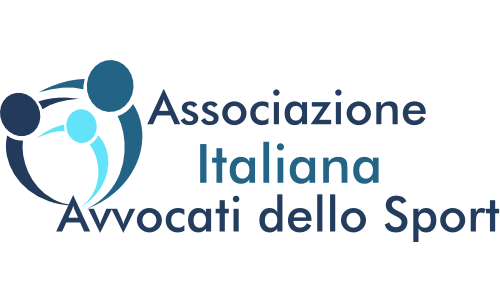


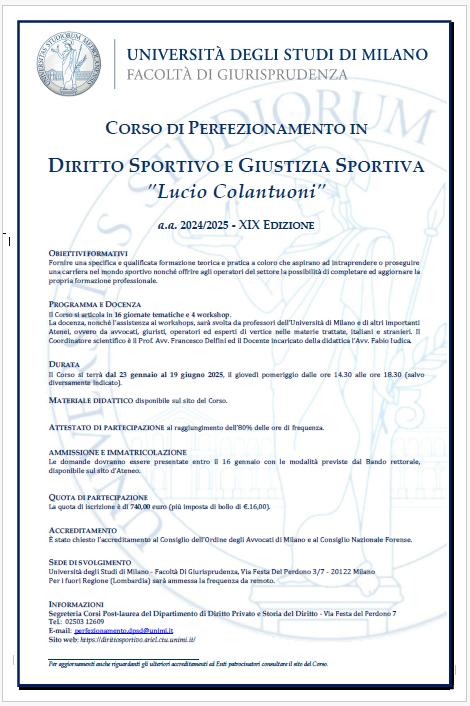

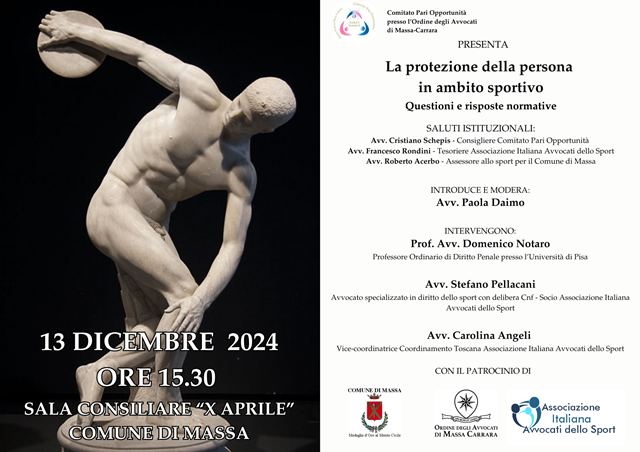
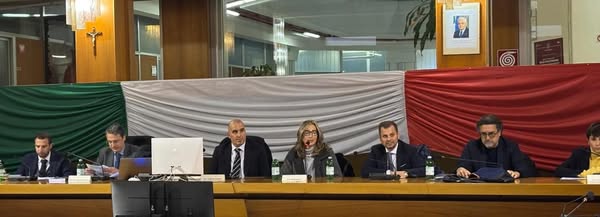
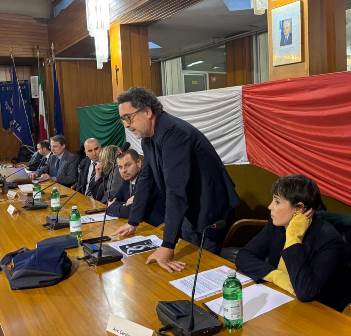
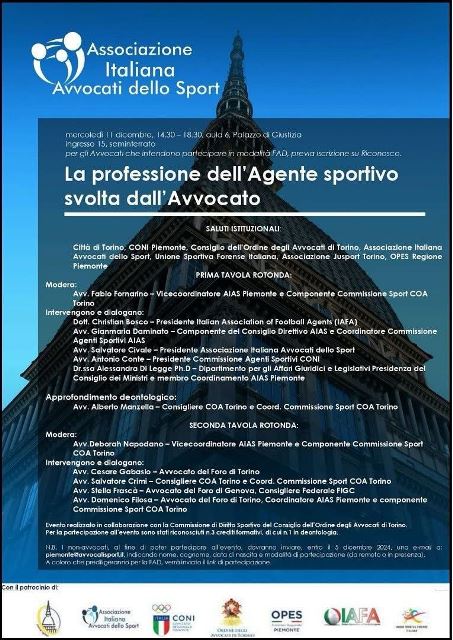
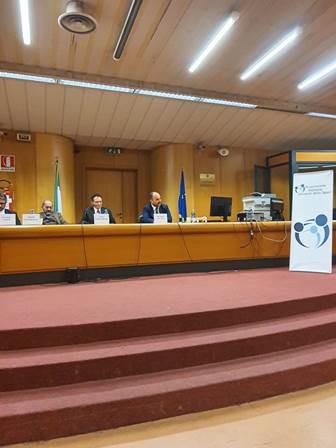
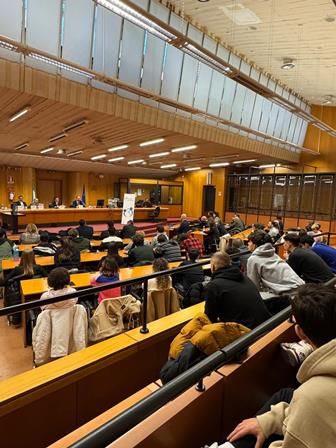
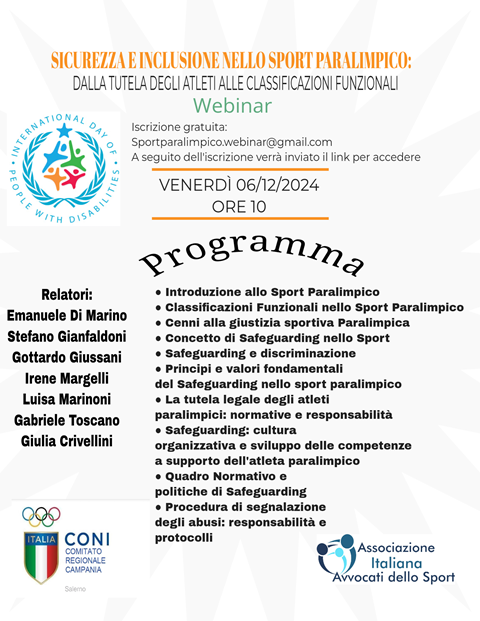



.jpg)

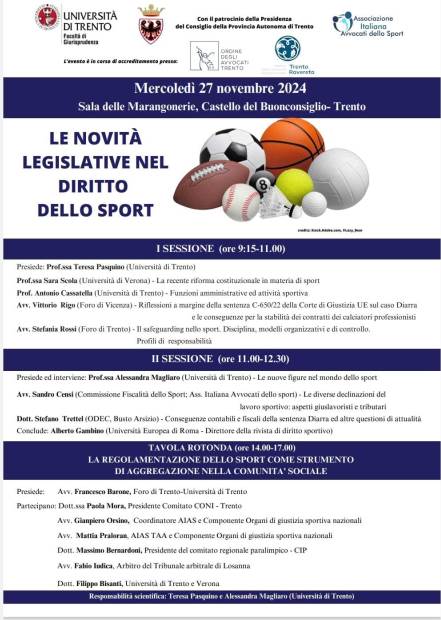
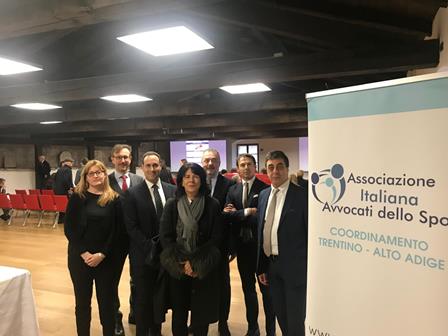
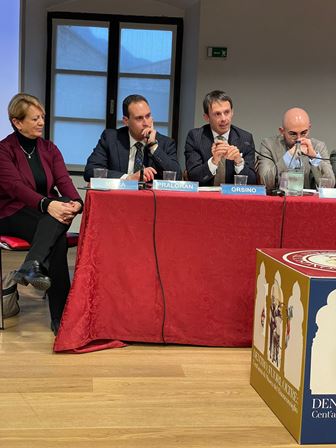
 Full Professor of European Union Law at the University of Bergamo
(Italy), CAS Arbitrator and member of the “Collegio di Garanzia dello Sport del CONI” (Italian
highest Sports Court of the Italian Olympic Committee). He is an Attorney-at-law and co-founder
of the Law Firm Bastianon-Garavaglia in Busto Arsizio (Italy). He is a member of the Steering
Committee of the Rivista di Diritto Sportivo and the Scientific Committee of the Rivista di Diritto
ed Economia dello Sport.
Full Professor of European Union Law at the University of Bergamo
(Italy), CAS Arbitrator and member of the “Collegio di Garanzia dello Sport del CONI” (Italian
highest Sports Court of the Italian Olympic Committee). He is an Attorney-at-law and co-founder
of the Law Firm Bastianon-Garavaglia in Busto Arsizio (Italy). He is a member of the Steering
Committee of the Rivista di Diritto Sportivo and the Scientific Committee of the Rivista di Diritto
ed Economia dello Sport.
 Civil servant of the European Commission in Brussels, member of the
Dispute Resolution Chamber of the FIFA Football Tribunal and President of the Council of the
European Court of Arbitration of the European Handball Federation. He is the co-founder and
honorary President of the Italian Association of Sports Lawyers (AIAS), editor of the International
Encyclopaedia of Sports Law and Scientific Director of the Rivista di Diritto ed Economia
dello Sport.
Civil servant of the European Commission in Brussels, member of the
Dispute Resolution Chamber of the FIFA Football Tribunal and President of the Council of the
European Court of Arbitration of the European Handball Federation. He is the co-founder and
honorary President of the Italian Association of Sports Lawyers (AIAS), editor of the International
Encyclopaedia of Sports Law and Scientific Director of the Rivista di Diritto ed Economia
dello Sport.
 Dottore in Giurisprudenza presso l’Alma Mater Studiorum - Università di Bologna. Vincitore ex aequo «Premio RDES 2023-2024».
Dottore in Giurisprudenza presso l’Alma Mater Studiorum - Università di Bologna. Vincitore ex aequo «Premio RDES 2023-2024».
 Attorney-at-law admitted to the Barcelona Bar Association (Spain) and founding partner of UNO ONE LEGAL PARTNERS SLP, law firm based in Valencia (Spain). Law degree from Universitat Pompeu Fabra (Barcelona), a master’s in international business and EU Community Law from Universite de Paris I (Sorbonne), a Postgraduate degree in Andorran law from Universitat d’Andorra and a degree in Advanced Taxation from Instituto de Empresa (Madrid). He sits as a member of the Evaluation Committee of LaLiga and is a Judge to the FIA Cost Cap Adjudication Panel (Formula 1 and Formula E).
Attorney-at-law admitted to the Barcelona Bar Association (Spain) and founding partner of UNO ONE LEGAL PARTNERS SLP, law firm based in Valencia (Spain). Law degree from Universitat Pompeu Fabra (Barcelona), a master’s in international business and EU Community Law from Universite de Paris I (Sorbonne), a Postgraduate degree in Andorran law from Universitat d’Andorra and a degree in Advanced Taxation from Instituto de Empresa (Madrid). He sits as a member of the Evaluation Committee of LaLiga and is a Judge to the FIA Cost Cap Adjudication Panel (Formula 1 and Formula E).
 Dottorando di ricerca in Diritto dei consumi presso il Dipartimento di Economia dell'Università degli Studi di Perugia (XXXVIII ciclo) ed in Diritto privato presso la Facultad de Derecho de la Universidad de Salamanca (Spagna). Cultore della materia nel settore GIUR-01/A (Diritto privato) presso il Dipartimento di Scienze Giuridiche dell’Università degli Studi del Salento e presso il Dipartimento di Economia dell’Università degli Studi di Perugia. È stato Visiting Ph.D. student presso la Facultad de Derecho de la Universiad de Salamanca per otto mesi e presso la Facultad de Derecho de la Universidad de Granada per quattro mesi. È autore di pubblicazioni scientifiche nonché relatore a seminari e convegni in Italia ed all’estero in vari settori del Diritto privato e dell'economia.
Dottorando di ricerca in Diritto dei consumi presso il Dipartimento di Economia dell'Università degli Studi di Perugia (XXXVIII ciclo) ed in Diritto privato presso la Facultad de Derecho de la Universidad de Salamanca (Spagna). Cultore della materia nel settore GIUR-01/A (Diritto privato) presso il Dipartimento di Scienze Giuridiche dell’Università degli Studi del Salento e presso il Dipartimento di Economia dell’Università degli Studi di Perugia. È stato Visiting Ph.D. student presso la Facultad de Derecho de la Universiad de Salamanca per otto mesi e presso la Facultad de Derecho de la Universidad de Granada per quattro mesi. È autore di pubblicazioni scientifiche nonché relatore a seminari e convegni in Italia ed all’estero in vari settori del Diritto privato e dell'economia.